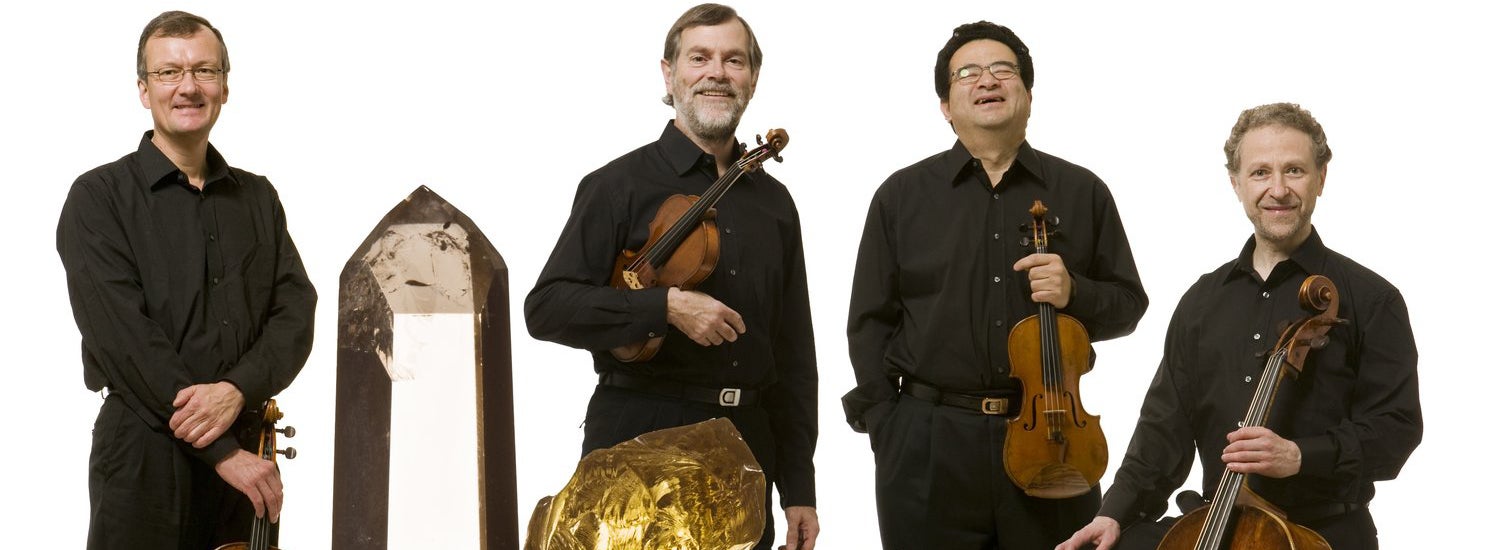YST STORIES
A Conversation With The Endellion String Quartet
23 January 2017

“
“All quartets are made up of individual players; everyone bringing a different balance of qualities and priorities.”
One of the biggest challenges for any artist is to develop their own unique identity, let alone four distinct individuals coming together. We talk to one of the founding members of the Endellion String Quartet, violist Garfield Jackson, about how the quartet has successfully sustained 38 seasons as an ensemble.
IS THIS THE QUARTET’S FIRST VISIT TO SINGAPORE?
This will, indeed, be our first visit to Singapore. It is always exciting and interesting to visit a new country. We understand that the Asian food there is excellent and as travelling musicians this is always very good news. We are also very much looking forward to hearing the students and working with them.
WHY DID YOU SELECT THESE PIECES FOR THE PROGRAMME?
We tried to bring a cross section of styles, starting with the Haydn, then the epic ‘tour de force’ that is Bartok’s fifth quartet, and finally the somewhat enigmatic and unique character of the Sibelius. Both these last two pieces draw strongly from a background of music from the composers’ native countries, which is in line with Conservatory’s theme for the semester, Music 1990-1945 – A World Twice at War.
HOW DID YOU APPROACH HAYDN’S QUARTET OP. 64?
The Haydn is a work we have played from the early days of our group. It is always a delight to revisit these pieces, sometimes after an extended gap. In the context of the programme as a whole, this Haydn is perhaps one of his most good natured and high spirited works, and makes a great counterbalance to the Bartok and Sibelius.
WHAT SHOULD WE LISTEN OUT FOR IN HAYDN’S QUARTET OP. 64?
Listen out for the way that Haydn uses the individual instruments in different ways. Sometimes creating an accompanying bed to a lyrical melody, at other times, a dialogue between voices of equal importance. Textures and musical characters change and Haydn always manages to surprise us with an unexpected turn or humorous moment.
HOW DID YOU DEVELOP YOUR IDENTITY AS AN ENSEMBLE?
All quartets are made up of individual players; everyone bringing a different balance of qualities and priorities. Given time and constructive rehearsal, these unique elements will combine and develop, evolving into a quartet’s identity.
HOW DO YOU MANAGE TO WORK SO WELL AS AN ENSEMBLE FOR ALMOST 40 YEARS? (DO YOU EVER ARGUE?)
We have occasional arguments. But generally, with a broad agreement about the end goal and, perhaps, experience of knowing when not to pursue an idea too far, we know the most important aim is to make the music work.
WHAT IS ONE PIECE OF ADVICE YOU WOULD GIVE A YOUNG STRING QUARTET AND WHY?
I would advise the players in young quartets not to neglect their individual tuition, not to have too many lessons as a group and, above all, to develop their knowledge and understanding of the language and structure of quartet playing.
Renowned as one of the finest quartets in the world, the Endellion String Quartet will give their first-ever concert in Singapore on 7 February during its week-long residency at the YST Conservatory. Their residency will include a public chamber masterclass on 6 February, coachings and further explorations on Haydn’s Op. 64 with Conservatory students who will perform at the Asian Civilisations Museum on 10 February.
Heralded by The Guardian as a quartet which ‘captivates concertgoers with a remarkable rapport, playing to each other with a sense almost of discovery, communicating to the audience on a level of unusual intimacy’ and one that ’sets the audience ablaze’ (Daily Telegraph), the Conservatory is honoured to have them in residence.
View Stories by Themes
YST CONSERVATORY
National University of Singapore
3 Conservatory Drive
Singapore 117376